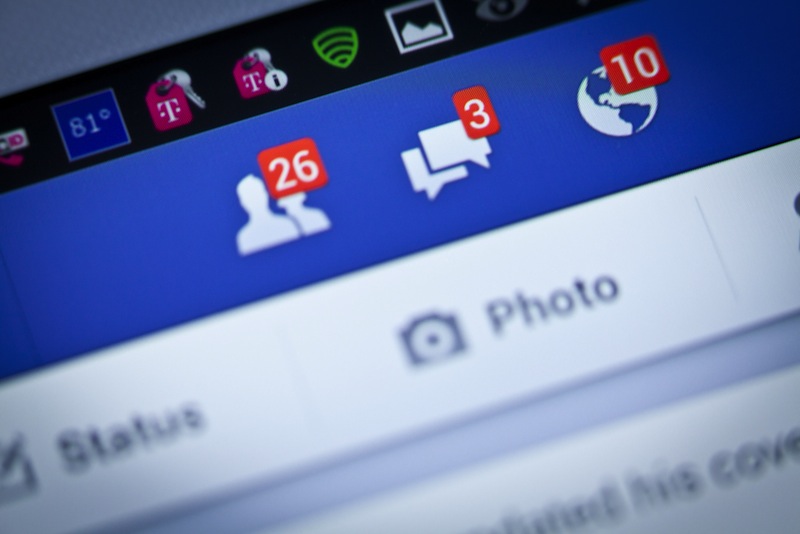
For many Facebook users, the urge to like a kitten video or snoop on a high-school flame is almost irresistible.
As it turns out, this type of "Facebook addiction" may show up in the brain: A new study found that the brains of people who report compulsive urges to use the social networking site show some brain patterns similar to those found in drug addicts.
However, the parallel isn't perfect: Compulsive Facebook users may have more activity in impulsive systems in the brain, but the brain regions that inhibit this behavior seem to work just fine, unlike in the brains of cocaine addicts. [The Top 10 Golden Rules of Facebook]
One possibility is that, in cases of Facebook addiction, people are sensitized to respond strongly to positive triggers associated with the site, said study co-author Ofir Turel, a psychologist at California State University, Fullerton. "They have the ability to control their behavior, but they don't have the motivation to control this behavior because they don't see the consequences to be that severe."
Wide-reaching impact
Several studies have suggested that Facebook and other social networking sites have a profound impact on people. For example, Facebook can hurt a woman's body image, allow people to obsess over a failed relationship and even lead some people to fall into depression. In fact, so many people end up feeling left out after seeing pictures of friends at a rooftop party or eating opulent meals, for example, that there's even a word for it: "fear of missing out," or FOMO.
In recent years, researchers have coined the term "Facebook addiction" to describe people with an unhealthy desire to spend hours checking the social networking site.
Sign up for the Live Science daily newsletter now
Get the world’s most fascinating discoveries delivered straight to your inbox.
But whether this type of compulsion is truly an addiction is hotly debated.
Facebook brain
To understand how this process affects the brain, Turel and his colleagues asked 20 undergraduate students to fill out a questionnaire that gauged addiction-type symptoms associated with Facebook use, such as withdrawal, anxiety and conflict over the site.
The researchers then used functional magnetic resonance imaging (fMRI) to study the participants' brains while they looked at a series of computer images — some Facebook logos, and others of neutral traffic signs. The students were told to either press or not press a button in response to each image.
The higher people scored on the Facebook addiction survey, the more likely they were to quickly hit the button when viewing Facebook images compared to neutral images. Similarly, the participants were more likely to mistakenly press the button when they saw a Facebook logo versus a neutral traffic sign. Essentially, the Facebook cues were much more potent triggers in people's brains than the traffic signs, Turel said. [Understanding the 10 Most Destructive Human Behaviors]
That means that, if you're driving on a street next to someone who has a compulsive relationship with Facebook, they are "going to respond faster to beeps from their cellphone than to street signs," Turel told Live Science. "That's the power of Facebook."
The Facebook "addicts" showed greater activation of their amygdala and striatum, brain regions that are involved in impulsive behavior. But unlike in the brains of cocaine addicts, for instance, the Facebook users showed no quieting of the brain systems responsible for inhibition in the prefrontal cortex.
That could be because Facebook "addiction" is fundamentally unlike substance addiction, or it could be that the study only looked at people whose daily lives weren't much impaired by their desire to be on Facebook, Turel said.
Hooked on Facebook?
Addiction to social networking is likely caused by a collision of biological, psychological, social and cultural factors, Cecilie Schou Andreassen, a psychologist at the University of Bergen in Norway who was not involved in the study, said in an email.
The study looked at a relatively small, homogeneous group with relatively low levels of Facebook addiction, so "it is therefore questionable whether this sample is appropriate for investigating Facebook addiction," Andreassen told Live Science.
Social networking sites like Facebook "hook" people using four elements: a trigger, such as loneliness, boredom or stress; an action, such as logging in to Facebook; an unpredictable or variable reward, such as scrolling through a mix of juicy and boring tidbits in the newsfeed; and investment, which includes posting pictures or liking someone's status update, said Nir Eyal, a startup founder and author of "Hooked: How to Build Habit-Forming Products," (Nir Eyal, 2013).
"Facebook is a poster child for a company that has these hooks," Eyal told Live Science.
Getting "unhooked" is a matter of breaking that chain by putting some friction into the process — for instance, by using a website blocker or putting an Internet router on a timer that shuts off at night, Eyal said.
The new study was published in December 2014 in the journal Psychological Reports: Disability and Trauma.
Follow Tia Ghose on Twitterand Google+. Follow Live Science @livescience, Facebook & Google+. Originally published on Live Science.

Tia is the managing editor and was previously a senior writer for Live Science. Her work has appeared in Scientific American, Wired.com and other outlets. She holds a master's degree in bioengineering from the University of Washington, a graduate certificate in science writing from UC Santa Cruz and a bachelor's degree in mechanical engineering from the University of Texas at Austin. Tia was part of a team at the Milwaukee Journal Sentinel that published the Empty Cradles series on preterm births, which won multiple awards, including the 2012 Casey Medal for Meritorious Journalism.









